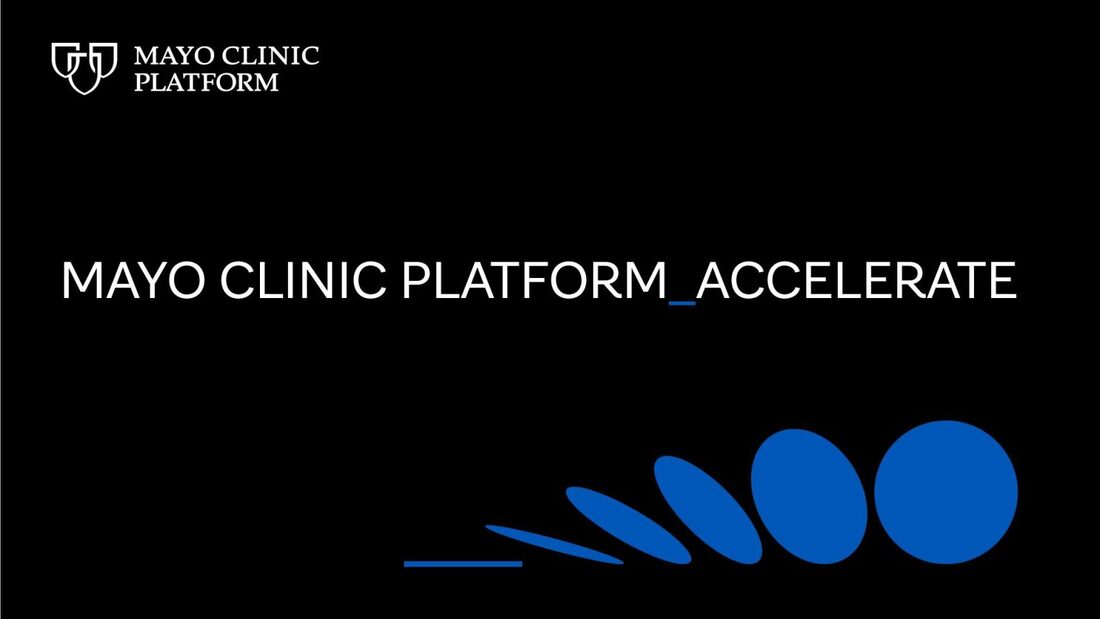
李宛庭
「solaxin」與「solian」兩個極其相似的藥名,實際卻是天差地遠的藥品,分別是肌肉鬆弛劑和抗精神病藥。另外,每家藥廠又都有著各自的命名方式,因此即使是聰明又小心的醫生,也可能不小心開錯藥。 開錯藥品可能帶來的風險,不只是患者無法得到妥善的治療,還有可能導致誤食過敏藥物、產生其他副作用等嚴重後果。 2019年,醫守科技看見了醫療產業開錯藥的問題,開發RxPrime藥御守協助解決,現今則推出DxPrime好完診進軍診斷系統服務,今(2022)年8月更完成了295萬美元(約新台幣8,850萬元)的Pre-A輪募資,由台杉資本領投、日本知名上市遊戲公司Colopl Next、美國創投500 Global和比翼生醫創投等跟投。 從原先的「藥物開立服務」跨足「診斷系統服務」,醫守科技究竟看見了哪些產業問題? 從「用藥」到「診斷」,醫守科技如何從知名產品RxPrime藥御守轉型再出發? 2019年成立的醫守科技,最先推出的產品是RxPrime藥御守,希望為醫生減少開錯藥的狀況。藥廠出廠藥品時,會為藥品命名,相似的藥名卻可能是天差地遠的藥品,於是醫守科技的RxPrime藥御守,透過機率模型與增強學習雙重人工智慧引擎,打造用藥安全演算法,在偵測到藥品可能開錯時,即時發出系統警告提醒醫生。 儘管推出RxPrime藥御守立意良好,醫守科技卻面臨到了醫院採購的系統性問題。
Digital health startup AESOP Technology has raised a $2.95 million series pre-A round to address the growing medical and billing errors problem. The round was led by Taiwania Capital with participation from Colopl Next, 500 Startups, and BE Capital.
Originally from Taiwan, AESOP started as a university spin-off from Taipei Medical University (TMU). Professor Yu Chuan (Jack) Li, the founder and current president of the International Medical Informatics Association, spent ten years before AESOP working on big data approaches to reduce medication errors. He initially applied the model to launch a product, RxPrime (previously known as MedGuard), that identifies wrong-drug errors. During the pandemic in 2020, Prof. Li officially established AESOP in the US with his former student, who grew to become CIO of a TMU-affiliated hospital, Dr. Jim Long, and former TMU Visiting Assistant Professor, Dr. Jeremiah Scholl. They worked together to broaden the types of errors the AI could identify and on products they could use to improve the US healthcare system. "Our solution is revolutionary and generalizable." CEO Jim Long described. "We have developed an AI model with an exceptional understanding of the association between diagnoses and structured clinical data like medications, lab results, and procedures." One of the first errors RxPrime identified was a 9-year-old girl accidentally prescribed an anti-schizophrenia drug for simple back pain. Another commonly prescribed error was Acetaminophen (pain killer), sometimes mistaken as Acetazolamide (glaucoma and altitude illness). "These mistakes might occur just because the two drugs have look-alike or sound-alike (LASA) names. It is horrible to think about, but errors like LASA happen in hospitals everywhere." Jim explained
ROCHESTER, Minn. — Mayo Clinic Platform_Accelerate has announced its second cohort of health tech startups, including national and international businesses. The program will help seven companies develop and validate their artificial intelligence-driven health care products or solutions and advance their business plans.
The immersive, 20-week program offers participants access to Mayo Clinic experts in regulatory, clinical, technology and business domains with a focus on AI model validation and clinical readiness. Technology experts from Google and Epic also will provide workshops for the participants. "The only way we can transform health care is by bringing together clinical experts with technology innovators," says John Halamka, M.D., president of Mayo Clinic Platform, a strategic initiative to improve health care through insights and knowledge derived from data. "Our Accelerate program combines emerging companies with breakthrough ideas, leaders from Mayo's clinical practice and our unique 'data behind glass' approach to algorithm development," Dr. Halamka says, describing the secure environment that allows companies to build algorithm models they can use for innovation, but the data never leave the Mayo Clinic Platform. The program will help participants explore ways to improve health care in a variety of areas:
California-based medical AI startup Aesop Technology, which has an R&D office in Taiwan, has recently unveiled its latest clinical documentation improvement tool that helps coders spot incorrectly coded diagnoses or procedures. DxPrime provides suggestions to support medical data entry. The CDI tool is based on a machine learning model that has been trained based on a data set of some 3.2 billion patient visits. According to Aesop Technology, their latest solution for medical coding harnesses AI to "efficiently compensate for traditional CDSS and NLP weaknesses to find correct or missed diagnoses". WHY IT MATTERS Now available on digital health marketplace Olive Library, DxPrime provides information on missing and wrongly coded diagnoses or procedures to easily correct patients' charts. With incorrect patient records, Aesop claims, patients could be given improper discharge instructions, thus receiving poor after-discharge care. For providers, this could lead to a wrong estimate of their patients' length of stay and wrong code insurance claims, which could ultimately result in denials and revenue losses. Aesop emphasized that errors in diagnosis input are difficult for physicians to avoid due to the gap in their knowledge of coding systems. Currently, the 10th revision of the International Statistical Classification of Diseases and Related Health Problems (ICD-10) has 14,400 diseases included in its base classification, 68,000 diagnosis codes under ICD-10-CM and 87,000 procedural codes under ICD-10-PCS. 
PRNewswire
Medical AI start-up Aesop Technology announced a new partnership that made their new product, DxPrime, available in the Olive Library. DxPrime provides physicians and clinical documentation improvement (CDI) teams with information about missing and wrongly coded diagnoses and procedures to correct the patient's chart in just a few clicks. It makes completing discharge summaries, prioritizing work for CDI teams, and medical coding much easier, faster, and less error-prone.
If the patient record is incorrect, you cannot code correctly. Completeness, precision, and validity of medical documentation are critical for all healthcare stakeholders. Without correct patient records, patients could receive improper discharge instructions and a sub-optimal continuum of care. Providers also can struggle to estimate the length of stay and code insurance claims correctly, resulting in denials and loss of revenue. Approximately 10% of inpatient claims are denied, of which more than 85% (or about $35 billion) result in unnecessary losses. Many of these denials occur because of errors in the patient record that occur upstream from the claims process. Diagnosis input errors are difficult for physicians to avoid because the knowledge of coding systems is different from what they need to learn to provide great patient care. Modern medicine's complexity has caused 14,400 diseases to be included in ICD-10, further classified into 68,000 ICD-10-CM and 87,000 ICD-10-PCS codes. "Physicians, CDI team, and coders have to spend a lot of time poring through medical records to find the key clinical diagnoses among the vast amount of information available," said Jim Long, CEO of AESOP. "After that, they have to follow a series of inefficient steps on the computer to complete the input process, and search functionality for ICD codes often is not helpful. The whole process is complex, time-consuming, and error-prone. When the physicians input the improper diagnosis, it also has downstream implications. "When using DxPrime, we have helped physicians often notice they did not correctly code complications such as urinary tract infections and respiratory failure. By assisting them in inputting the proper diagnoses, our partners have seen an increase in revenue of 5-10% per inpatient." State-of-the-art machine learning assisted physician data entry. DxPrime provides high-quality suggestions to support physician data entry based on a machine learning model (published in the Healthcare journal) that has been run on top of data from 3.2 Billion patient visits, including vast amounts of structured information. It allows DxPrime to use items from the patient record like lab test results and medications ordered when predicting a diagnosis. This comprehensive model utilizes artificial intelligence to efficiently compensate for traditional CDSS and NLP weaknesses to find correct or missed diagnoses.
Referred from: PR Newswire
U.S.A., Jan. 31, 2022 - Olive, the automation company creating the Internet of Healthcare, today announced the winners of the first-ever Hack for Health contest. In partnership with Rotera, Olive held the contest to encourage developers to build Loops (think apps in an app store) that will change the way healthcare employees work by improving efficiency, reducing the scope for errors and burnout, and enhancing productivity — all to optimize the patient experience.
Olive designed its Hack for Health contest to solve healthcare’s biggest problems through collaboration with the developer community. Participation is open to any individual developer, startup, health system, or enterprise technology company. Winning Loop submissions are published on Olive’s platform, giving developers full access to Olive’s growing payer-provider network. While any developer who publishes a loop on Olive’s platform receives 85% of the revenue generated from their Loop(s) once published, Hack for Health grand prize winners also receive tiered cash prizes up to $10,000, industry speaking engagement opportunities, a 60-minute pitch meeting with the Olive Ventures team, an Oculus Quest 2, YubiKey, and a 30” curved monitor. Olive also provides opportunities for its employees to develop Loops as part of an internal contest with its own set of prizes. “Olive created healthcare’s first true platform. We wanted to create an event that encouraged a wide range of developers to come build on it to grow our ecosystem of people working together to transform healthcare,” said Patrick Jones, Executive Vice President, Partnerships at Olive. “Our first-ever Hack for Health contest, in partnership with Rotera, was the perfect way to introduce developers of all sizes to Olive and create new solutions that will help change the way healthcare workers work.” Olive selected the following five Loops as the grand prize winners based on their functionality, innovation, outcome improvement, and bettering of diversity, equity, and inclusion among underrepresented healthcare workers and patients:
|
全部
|
醫守科技股份有限公司
|

|
© AESOP Technology 2024







